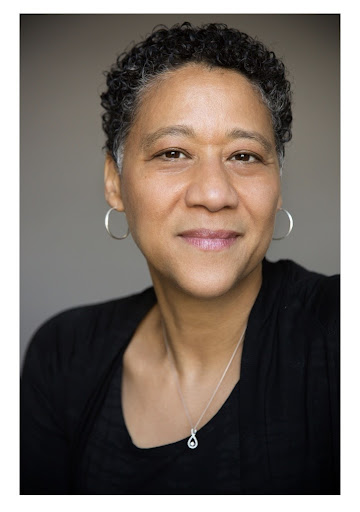Building racial literacy to become more culturally competent individuals and organizations

How does implicit bias negatively impact the experience of your students, or your ability to fulfill your organization’s mission? Identifying and understanding identity anxiety, stereotype threat, microaggression, and how children learn to understand differences is essential to building successful teacher-student relationships, and to continuing your organization’s internal equity and inclusion process.
This five-session series, led by Dr. Sandra Chapman, an educator and equity consultant with more than thirty years of experience in independent schools, is designed to help us shift our mindsets and modify our practices to engage with students, peers and community members more effectively across differences.
An essential learning opportunity for Jewish educators addressing the equity needs of racially diverse students, and community members
A 2019 study, commissioned by the Bay Area based Jews of Color Initiative, found that 12–15% of the American Jewish population are Jews of Color. The years since have been ones of difficult reckoning in our community. The Jewish organizational world has a great deal of work to do in making sure that our community spaces are in the words of April Baskin, “just and affirming for Jews and their loved ones.” Tzedek, justice is a foundational Jewish value, and we all learn best when we can be our full selves.
“What is good, and what does G-d require of you: Do Justice, Love Goodness and Walk Humbly with your G-d.” Micah 6:8
- Aimed at: This program is designed for educational leaders, teachers and anyone facilitating learning experiences in a Jewish school, camp, youth group or communal organization.
- Structure: A series of five virtual sessions. To receive the full benefit of this series, we encourage participants to commit to attending all sessions.
- Facilitated by: Dr. Sandra Chapman, founder of Chap Equity.
Program Details
- Dates: From September 2022 to May 2023.
- Location: Virtual program. Zoom link provided upon registration.
“As a white passing Latinx Jew, I am often in liminal spaces both in predominantly white spaces and JoC spaces. I totally understand the white skin privilege that I have and also understand how racialization works to make me feel like I don’t belong in either white or JoC spaces.” – A Hispanic or Latina/o/x and nonbinary/Two-Spirit/third gender person in their 30s, Beyond the Count study
Learning Arc
Our unconscious brains process information at rapid speeds. Implicit bias is the brain’s automatic, instant association of stereotypes or attitudes toward particular groups, often without conscious awareness. In this session, we will explore the impact of that implicit bias on our interactions with others and our decision making. Dr. Chapman will introduce strategies for intervening to recognize and minimize implicit bias, to create more equitable environments.
Date & Time: Thursday, September 1, 2022 from 10:00 – 11:30 am Pacific.
Identity and racial anxiety are concepts that speak to the level of anxiety produced by an individual’s desire to avoid stereotypes or to appear more friendly and less biased. For members of marginalized social groups, anxiety may stem from a fear of experiencing bias; while for those who are members of a dominant social group, anxiety may stem from a fear of being perceived as biased. In this session, we’ll explore evidence-based strategies to reduce identity and racial anxiety at the individual and interpersonal levels, which, over time, can contribute to building healthy organizational culture for all.
Date & Time: Thursday, November 3, 2022 from 10:00 – 11:30 am Pacific.
We all carry intersecting and complex identities. When we hold identities that are subject to stereotypes, we may fear that we will confirm the stereotype with our behavior.Not every member of a particular group is subject to stereotype threat, but when a person is subject to threat, they are unlikely to perform to their fullest capacity. In this session, we will review practices that can prevent stereotype threat either from being triggered or from affecting performance, and consider how to create environments that are “identity safe.”
Date & Time: Wednesday, January 11, 2022 from 10:00 – 11:30 am Pacific.
Racial microaggressions, as defined by Dr. D. W. Sue are “brief and commonplace daily verbal, behavioral, and environmental indignities that communicate hostile or derogatory racial slights and insults to people of color.” How can Black, Indigenous, People of Color recover and develop resilience from these racialized experiences? How can White people better understand racial microaggressions and manage racial anxiety in order to develop resilience for addressing the ones they may commit. Dr. Chapman will help us unpack how such microaggressions play out in our everyday environments, and how to address them.
Date & Time: Wednesday, March 15, 2023 from 10:00 – 11:30 am Pacific.
In today’s society, young children receive daily messages about social identities. When these messages are affirming, they aid in the development of a healthy sense of sense. However, negative messages are also absorbed through explicit and implicit means. In this final, three-hour session, we will explore how educators and parents can help preschool, elementary children, preteens, and teens know themselves well and love themselves even more.
Date & Time: Thursday, May 4, 2023 from 9:30 am – 12:30 pm Pacific.
Registration
Cost: $432 per participant.
Registration is now closed, however if you are interested in participating, do not hesitate to contact Liora Brosbe at liora@jewishlearning.works.
The foundational workshop for this series is Constructing Our Racial and Ethnic Identities (May 2022). Attendance to this workshop is not a prerequisite to participate in the series.
Questions About the Program?
For more information or any questions you may have, please contact Liora Brosbe at liora@jewishlearning.works.
“I was raised within a very white Jewish community where I stuck out very much. My dad and I were always two of the only people of color in the space. So I was always very aware of my not whiteness.” – A Mexican and white woman in her 20s, Beyond the Count study
“I grew up in the American Jewish institutions, day school and camps and Hillel, and I feel like I have a particular perspective that’s from the inside, but also always having felt just on the outside.” – A mixed, Middle Eastern, Mizrahi, Arab, and Ashkenazi woman in her 30s, Beyond the Count study
About Our Facilitator

Sandra (Dr. Chap) Chapman, Ed. D. is the Founder of Chap Equity, an organization rooted in the belief that, through teamwork, we can learn more about ourselves and others; discuss and discover the foundational research needed to address the needs in a community; create conversations that support individuals where they are and confront barrier issues; and create actionable steps towards building stronger educational communities. In addition, Dr. Chap is the Deputy Director of Programs and Curriculum at the Perception Institute, where she identifies opportunities to translate the mind sciences and other essential concepts into interactive trainings that build the capacity for clients to transform their organizations. Chap facilitates workshops on racial identity development, racial micro-aggressions, implicit bias, identity / racial anxiety, and stereotype threat in education, healthcare, and with teams in various types of organizations. Embedded within each concept are tools for helping individuals override unconscious phenomena linked to identity and better connect behavior with values.
Between 2019 and 2021, Dr. Chap worked as the lead on Identity Development for the Great First Eight Infant and Toddler curriculum development project, led by Dr. Nell K. Duke at the University of Michigan. Great First Eight is a full day, project-based curriculum designed to integrate all disciplines, prioritizing science and social studies to an unprecedented degree for the infant through primary grades, and to support educators in enacting culturally relevant pedagogy. Chap is the co-author of Black Girl on the Playground (Teaching Beautiful Brilliant Black Girls, Corwin Press, 2021).


